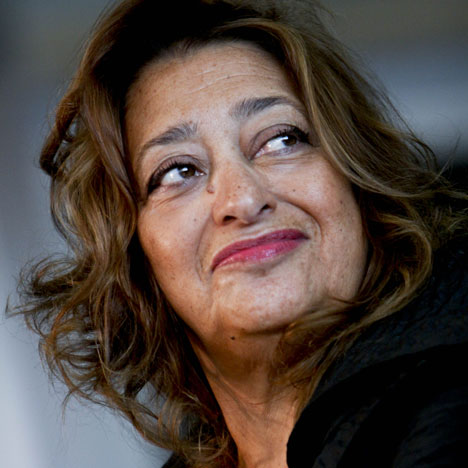
Critic apologises for Zaha Hadid "error" in book review
News: architecture critic Martin Filler has said he regrets making an error in a book review that accused Zaha Hadid of showing a lack of concern for worker conditions on her World Cup stadium project in Qatar.
Zaha Hadid filed a law suit last week against Filler and the New York Review of Books after allegedly defamatory comments about her attitude to migrant workers were published as part a review of Rowan Moore's Why We Build: Power and Desire in Architecture.
Hadid accused Filler and the magazine of publishing "a personal attack disguised as a book review" and exposing the architect to "public ridicule and contempt".
The legal claim also said he had taken comments made by Hadid earlier this year about the deaths of migrant workers in Qatar out of context.
It said that Filler had accused Hadid of "not taking responsibility and showing no concern" for alleged worker deaths on her own project for the Qatar 2022 World Cup – the Al Wakrah Stadium – which had not started on site when the comments were made.
Filler has now said he regrets making an error in his article.
"In my review of Rowan Moore's Why We Build: Power and Desire in Architecture, I quoted comments by the architect Zaha Hadid, who designed the Al Wakrah stadium in Qatar, when she was asked in London in February 2014 about revelations a week earlier in the Guardian that hundreds of migrant laborers had died while working on construction projects in Qatar," said Filler in an official statement published on the New York Review of Books' website with the review.
"I wrote that an 'estimated one thousand labourers... have perished while constructing her project thus far.'"
"However, work did not begin on the site for the Al Wakrah stadium, until two months after Ms. Hadid made those comments; and construction is not scheduled to begin until 2015. There have been no worker deaths on the Al Wakrah project and Ms. Hadid’s comments about Qatar that I quoted in the review had nothing to do with the Al Wakrah site or any of her projects."
"I regret the error."
Filler had been referencing comments made by Hadid at a press conference in February this year for the re-opening of her Olympic swimming pool.
Asked about conditions on construction projects for the Qatar World Cup, Hadid responded that it was responsibility of the Qatari government not architects to address issues relating to worker deaths.
"It's not my duty as an architect to look at it," said Hadid. "I cannot do anything about it because I have no power to do anything about it. I think it's a problem anywhere in the world. But, as I said, I think there are discrepancies all over the world."
"I have nothing to do with the workers," she added. "I think that's an issue the government – if there's a problem – should pick up. Hopefully, these things will be resolved."
Filler did not mention any other aspect of Hadid's claim, which was filed with the New York State Supreme Court in Manhattan on Thursday. The architect was seeking "actual" and "exemplary" damages from the literary magazine as well as all legal costs related to the case, a retraction and removal of the article.
New York Review of Books editor Robert Silvers told the Guardian the magazine had made an independent decision published Filler's statement.
"We have done this entirely on our own. This letter contains the facts that should be made public and the regret that we thought was appropriate," said Silvers who said retractions at his publication were "very rare". He did not mention damages.
Oren Warshavsky, a partner at legal firm BakerHostetler, who is representing Hadid in the case, said that the architect and her legal counsel were considering their response.
"The decision to file a lawsuit is never one made lightly," said Warshavsky. "Ms Hadid carefully considered the issues at stake to her professional career and reputation, and came to the conclusion that the filing of the lawsuit was the correct action to take."
In an earlier statement about the claim, Warshavsky had said that a correction or clarification would not be "appropriate or sufficient".